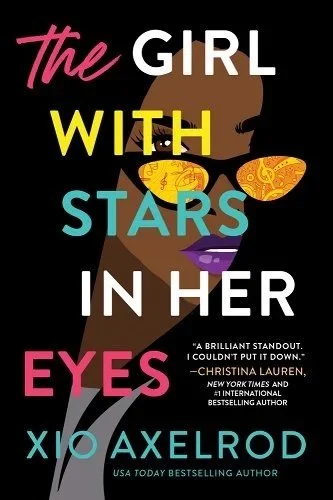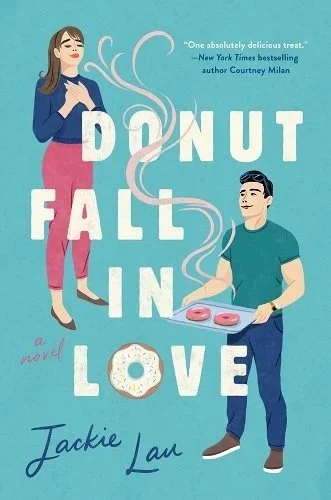At The Heart of It: Local Author Stacey Agdern on Romance
June 19, 2023 • Despite its undeniable popularity, with annual sales exceeding $1bn in 2022, romantic fiction remains a widely misunderstood (and often outright dismissed) genre. To get to the heart of it, I chatted with Stacey Agdern — Hudson Valley local Romance author and former Romance buyer for an indie bookshop — about her work, her favorite writers, and the past, present, and future of the romance genre.
TRANSOM BOOKSHOP: Twenty years ago, the word “romance” would have evoked a mental image of a ripped-bodice, naughty strumpet, Fabio-fronted Kensington paperback. Those still exist (more than 1/3 of all mass market books sold are romance), but the image has shifted toward a more general-interest, contemporary/pop-culture aesthetic. As a reader and writer of romance, how have you seen romance change over the years?
STACEY AGDERN: It’s fun because I think of genre development like a bookseller (fun fact : I was the romance buyer for a store in grand central terminal for almost ten years). As a reader, I love my mass markets and their price points; how easy they are to drop into a bag and move on with your day. But for various reasons, the market has started to prefer trades – maybe print size, with a mass market release scheduled a yearish after, the way they used to make the move to mass market from hardcover. Is trade the new hardcover?
Covers have changed too-with the advent of trades has come the return of the artist character drawn covers( like on B’Nai Mitzvah mistake). I still have a bunch of the older cartoon-ish-covers on a bunch of my books in my bookshelf, and the art has gotten so much better, so much tighter since the last time they arrived on shelves. Also more representative of the wider variety of titles and stories that are being published.
Which reminds me about how amazing it is to see the evolution of the historical romance in particular. As Bridgerton takes over the collective consciousness, authors like Adriana Hererra, Liana de la Rosa, Cat Sebastian and Felicia Grossman help to continue to widen the view of historical romance in England beyond regency ballrooms, and romancelandia points to Grand Dame Beverly Jenkins to show the way in the United States.
“I spend so much time taking deep dives into things that fascinate me—hockey, music, food, Jewish culture—and take the nuggets of inspiration I discover with me, tying them together and using these bundles to tell a story.”
TBS: Romance is the highest revenue-generating category of fiction—in 2021, exceeding $1.4bn in sales, nearly 3x scifi/fantasy! So why do you think there is still a stigma about reading romance?
SA: There are a bunch of different reasons, but for me, it always goes back to how people’s preconceived notion of the genre begins and ends with what serves as its lowest common denominator. Way too many people think that both readers and writers of the genre tend to act and write in accordance with the behavior of the characters in the romance novel they despise the most. Which, 90 percent of the time, is the book they were exposed to last. Other genres, including literary fiction, are publicized by what people see as it’s highest common denominator- those who serve as the genre’s best ambassadors.
Even Stacey Abrams, gubernatorial candidate and former romance writer under the name Selena Montgomery, was confronted with this set of stereotypes on a late night talk show. Her response, much to the host’s chagrin, was unabashed pride in and for the genre she once wrote. This doesn’t happen often because the response usually expected, and fostered, is disdain. Abrams was already beloved in the romance reading community, but this made her even more so.
“People’s preconceived notion of the [romance] genre begins and ends with what serves as its lowest common denominator.”
TBS: Your novels are romance with a particular focus on the Jewish-American experience. Also hockey. Also poutine! What are the challenges and advantages of sticking with themes like that? Is it like walking a precarious tightrope—or, conversely, like writing on your home turf?
SA: My books come from an amalgamation of things I love. I spend so much time taking deep dives into things that fascinate me—hockey, music, food, Jewish culture—nd take the nuggets of inspiration I discover with me, tying them together and using these bundles to tell a story. For example, finding out that a professional football player had his bar mitzvah once he retired was one of those nuggets. But books don’t just come from one idea; you need a bunch of them to fuel the necessary words. And so that idea gets pushed aside until it sparks with something else. Eventually, you might end up with a book about a retired hockey player and a project manager at a Jewish philanthropic organization who are forced to share a b’nai mitzvah date.
TBS: What romance novel would you recommend to general-interest fiction readers, that it might serve as a short bridge or cozy entry point into the genre?
SA: This is always a difficult question because as a former bookseller, I cannot help but want to ask that reader more specific questions. Because that’s what I think serves as the best bridge between a reader and the genre; tailored recommendations that show a general fiction reader the romance novel equivalent to what they love. For example, I’m itching to recommend Xio Axelrod’s The Girl with Stars in Her Eyes to anybody who’s interested in the music biographical style of Taylor Jenkins Reids’ Daisy Jones and the Six.
“They can be athletes. It can be a suspense or a thriller, historical, or horror or science fiction or a fantasy. All they have to be is alive and romantically together at the end. ”
TBS: And for your entrenched genre readers out there, what’s an unknown or under-appreciated novel that should be on every romance fan’s bookshelf?
SA: ooooh. That is a tough question. Because again, even within the genre, so many books, so little time. So what I’ll say is that there are two minds who always astound me, and whether either of them are under-appreciated, I’d hope not. But just the same, if you haven’t dived into the worlds of Ainsley Booth/Zoe York or Lucy Eden, you should fix that. Between these two authors, there’s a wide range of stories and worlds. And if you have read them, the next name on your list should be Jackie Lau.
“I wish people would realize that the romance genre is much wider, deeper and more creative than they think it is. That it has evolved while retaining the best of itself.”
TBS: What is it about a book that makes it a full-on romance novel, and not just a novel with some romance in it? Is it the plot, the characters, the writing…or is it the publisher, the agent, the publicist? Or something even more philosophical and esoteric? Or does this not even matter?
SA: A romance novel can be set anywhere, at any time, and all it requires to be defined as a romance novel, is the on page development of a primary romantic relationship that ends ‘happily’. That’s it. It’s a very plot/beat centric definition because it’s not a very large requirement, even though it’s an important one. The characters must be romantically together (whether with rings or promises it doesn’t matter) at the end of the novel. The characters can be spies or royalty or teachers or small business owners. They can be athletes. It can be a suspense or a thriller, historical, or horror or science fiction or a fantasy.
All they have to be is alive and romantically together at the end.
Anything else beyond this one requirement, is, as they say, gravy.
TBS: Where do you imagine romance headed in the next few years? Are you seeing any interesting trends or evolutions in the genre?
SA: One of the fun things about the genre is that it’s always evolving. I’m starting to see the rebirth/return of paranormal romances, the rise of what’s being called romantasy (which is just fantasy romance under a different name), and the rise of heist books has been an interesting twist on suspense novels. Subgenres pronounced dead three years before often return with a different perspective, and other sub-genres fall behind once again only to be revitalized by a new idea.
TBS: As with sci-fi, horror, crime, etc., there are plenty of people who would consider themselves unilaterally “not a romance reader.” What’s one thing you wish those folks knew about the genre before brushing it off entirely?
SA: One of my favorite Jane Austen novels is Northanger Abbey — which is rather famous for being an insiders spoof of the gothic novel. But the reason it resonates with me is because the novel’s undertone makes fun of people who judged those who loved gothic novels.
I know that not everybody is going to love every book- there are way too many for that. But whether people like the romance genre or not, I wished they would focus on what they do like, and not judge what others love to read.
But about the genre? I wish people realized that the romance genre is much wider, deeper and more creative than they think it is. That it has evolved while retaining the best of itself.




